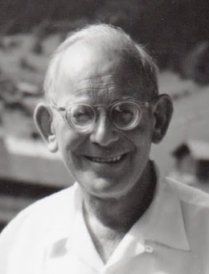Ernst Levy
Ernst Levy was born on 18 November 1895 in Basel (Switzerland). He was a piano child prodigy and his first concert appearance at the age of six - performing the Haydn D major concerto - caused a sensation. He studied studied under Egon Petri and Hans Huber and in 1906 the latter forced the release of Ernst Levy from the compulsory education. So since 1906 Ernst Levy could focus on his musical education and finished his studies at the conservatory of Basel in 1910. He then completed his piano studies under Raoul Pugno in Paris and started a career as a concert pianist.
In the following years Ernst Levy toured through Europe, performing with major orchestras like the Berlin Symphony Orchestra. Hans Huber dedicated a piano concerto to him, which Ernst Levy played on several occasions. In 1917 Ernst Levy accepted a position at the conservatory of Basel and lead a piano master class until 1921. Then he moved to Paris, where he could establish himself not only as a pianist but also as a conductor, composer and journalist. Ernst Levy wrote critics and reports of the Parisian music scene for Swiss newspapers. In 1928 he founded the Choeur Philharmonique de Paris and served as its conductor. He also composed choral compositions for this ensemble and performed them.
When the rise of the Nazi regime began in the 1930s Ernst Levy moved back to Switzerland. But he had to find out that he could not make a living there anymore and so emigrated to the USA in 1941. Ernst Levy immediately settled well in his new home country and was appointed professor at the New England Conservatory in Boston. In the following years he held similar positions at the Bennington College (1945-1948), at the University of Chicago (1949-1953), at the Massachusetts Institute of Technology (1954-1958) and at New York University Brooklyn College (1959-1966).
In 1966 Ernst Levy retired from his career as piano and composition professor and moved back to Switzerland. He settled in Morges near Geneva and continued to compose. Ernst Levy died on 19 April 1981 in Morges (Switzerland).
The work catalogue of Ernst Levy contains 15 symphonies, a cello, trumpet, bassoon and violin concerto and much chamber and vocal music. He composed for example 5 string quartets, 4 string trio, 3 violin sonatas and 7 piano sonatas. Among his vocal compositions are the 9 cantatas, the "Hymnus symphonicus" as well as many songs on words by Hermann Hesse, Heinrich Heine or Carl Seelig.
Due to the fact that Ernst Levy could make a living from his activities as a pianist and professor, he could follow his very own compositional ideas as a composer and had not to force performances or make compromises. For that reason the works by Ernst Levy were overlooked for many years.
In my possession is the manuscript of the piano reduction of the Symphony No.5 for violin, trumpet and orchestra. The work was composed in 1925 and was premiered the same year with the Winterthur Orchester. The work is dedicated to Fritz and Leonie Hirt. Fritz Hirt was the concertmaster of the Basel Symphony Orchestra and primarius of the Basel String Quartet at that time. The symphony received further performances in the following years, but contrary reactions. A performance of the work in Utrecht in 1926 was cancelled because the organisers feared a scandal. By contrast the Amsterdam-based "Algemeen Handelsblad" reported about the music festival in Zurich on 26 June 1926:
"The most important work of the concert was the Fifth Symphony by Ernst Levy, a Swiss composer who lives in Paris. [..] It is a very fierce, sharp and agonized music. [..] But it is an inventive work and as such of ten times more importance than the artistic skills of the notable Hindemith and Casella."
The piano reduction was - for unknown reasons - not arranged by Ernst Levy himself, but by the Swiss pianist Gertrud Kelterborn. For that reason the handwritten manuscript in my possession is in the hand of Gertrud Kelterborn. My manuscript is numbered "Klavierauszug III", the manuscript of the piano reduction in the Ernst Levy Archive at the library of the Basel University is numbered "Klavierauszug II" and also in the hand of Gertrud Kelterborn. It is unknown where the first copy is located today and if Gertrud Kelterborn made more than 3 copies.
